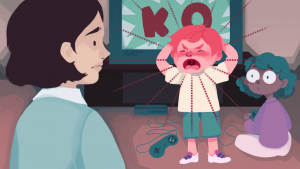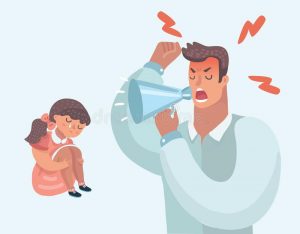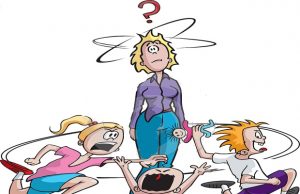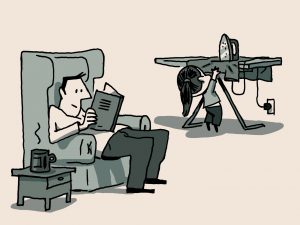The term ‘parenting style’ describes techniques parents and guardians use to interact with their children and influence their growth and development. The techniques used in raising a child go a long way in predicting their level of social competence, psychological development, academic performance, and shaping their behaviour. It determines the extent of mental, physical, and psychosocial wellbeing of children and their families.
The aim of parenting is to prepare children for life as efficient adults, ensure their health and safety, and transmit cultural beliefs and traditions. Environmental and biological factors influence how a child turns out, but parental practices play a huge part in this. Parenting is complicated and the reality is that as you try to influence your children in many ways everyday, sometimes they resist, and you as the parent may get tired and frustrated. However, an important thing to do as parents is to heal from our own (childhood) wounds, review how we were raised and the influence it had on us and be willing to move on from it.

Behavioural Problems in Children
Behavioural problems in children can be linked to the extent to which parents, especially mothers show affection and exert behavioural and psychological control over them. Behavioural control describes rules and restrictions parents put in place for their children so that they conform to certain standards. Psychological control is the extent to which parents try to control their children’s beliefs and emotional state. Psychological control is an intrusive behaviour and is a form of assault in itself because it manipulates and induces guilt in the child so that they do what the parents want.
Parenting styles are commonly classified into four which are:
- Authoritarian or Disciplinarian
- Permissive or Indulgent
- Uninvolved
- Authoritative

Helicopter parents, always to the rescue
Newer styles of parenting include the ‘helicopter’, ‘free-range’, and the ‘snow plow‘ parenting. While these styles have distinct qualities, they should be considered a continuum because there would be multiple times in a child’s life when other styles would be employed in addition to or apart from the preferred primary parenting style.
The effects of parenting last a lifetime and determines how the next generation will be nurtured or otherwise.
The Authoritarian or Disciplinarian
Authoritarian parents are disciplinarians who use strict style of discipline with as little negotiation as possible. Communication between an authoritarian parent and their child is usually one-way, the parent says what they want, and the child is expected to obey without the option of a choice. The child’s feelings or emotional state is not taken into consideration and when they question the reason behind a rule, they get answers like ‘because I said so!’
Authoritarian parents make rules and enforce consequences to ensure that their children feel sorry for their mistakes. They exert high level of control over their children, expect them to behave exceptionally and make no mistakes, yet they offer little guidance in terms of life lessons. These parents are obedience and status oriented hence they are more likely to use punishments instead of discipline.

Authoritarian Parent- I make the rules!
Some of the consequences of these styles of parenting is that children of these parents have a higher risk of developing self esteem problems when their opinions are not valued ( in fact, it can also be argued that the authoritarian parent also suffers self esteem problems which may cause flare ups when their opinions are not valued). They may struggle with feelings of anger and resentment towards their parents and have difficulty doing things better in the future. They are also more likely to grow up to become better liars to escape being punished or scrutinized. As these children grow, they may be afraid of new situations, risk taking, and develop anxiety because they were deprived the autonomy to explore their environment independently. They are also more likely to be lonely, depressed, or exhibit antisocial behaviour.
Permissive or Indulgent Parenting
These parents are the ‘free cruise’ type. They are the opposite of the authoritarian parents and are more friends than parents. They generally do not set boundaries, enforce rules, discipline, or control their children’s behaviours. Even though they are nurturing and offer a lot of warmth, they have lax discipline style, fail to set limits, and frequently do not follow through with consequences.

The Permissive Parent- Just do whatever you want kids, sigh.
Rather, they let their children figure things out themselves with minimal expectations. They are quick to forgive mistakes and encourage communication but do not particularly chastise bad behaviour. Because permissive parents rarely demand anything of their children, they may struggle with authority and self control.
Hence, these children tend to be aggressive, bossy, impulsive, disregard rules and limits set by society or other figures of authority.
Uninvolved parenting
Some parents make a conscious decision to give their children a lot of freedom and stay out of their way. No particular style of discipline is used, and this may be because the parents are less interested in parenting or they are just unsure of what to do. They basically expect their children to raise themselves. They devote less time to meeting the basic needs of their children and may appear unintentionally negligent. Their negligence may be because they are overwhelmed by other problems like survival, or because they lack knowledge about child development.

The Uninvolved Parent- I pay for the house, you can iron a few clothes. (neglect)
They are generally detached from their child’s life; some make sure they have food and shelter others neglect these basic needs and offer little to nothing in terms of guidance. Children of these parents often find themselves seeking replacement figures to substitute for the neglectful parenting. Unfortunately, these replacement figures are sometimes inappropriate, thus increasing their risk for dangerous behaviours including substance use/abuse.
Children of uninvolved parents may also show low self esteem, little confidence, aggressive behaviours, hostility, and attention problems to varying degrees.
Authoritative Parenting
Authoritative parents are nurturing, warm, set rules and put consequences in place for when the rules are not followed. This style of parenting is thought to be most beneficial to children because it encourages self discipline and independence. These parents set rules but also consider their children’s opinions, they invest time and energy into developing positive behaviour strategies which help prevent problematic behaviours before they even start. These positive behaviour strategies are there to reinforce good behaviour like praising the child for listening to instructions, praising the child for doing well at school, and establishing positive reward systems.

The Authoritative Parent- The supportive ‘let’s do this together’ parent.
The attitude of an authoritative parent encourages a child to think for themselves, preparing them to make better decisions and assess safety risks on their own. When children fail to meet set expectations, these parents are more supportive and forgiving than punishing. When set rules are not followed, these parents are supportive and nurturing while at the same time following through with set consequences. This style of parenting is very demanding, time consuming but also extremely rewarding.
Unfortunately, because it requires a lot of time and attention, parents who are more weighed down by the stress of survival, are less likely to use this style and employ less effective methods of parenting. So, parents in higher socioeconomic class are more likely to employ a democratic and child centered care like this.
This creates a systemic cycle of inequity because less effective methods of parenting increase the chances that a child would display internalizing and externalizing behaviour problems. These behaviour problems are likely to put the family under more stress, reduce effectiveness, and negatively impact social integration.

Dr Omowunmi H. Thanni is a physician with a medical degree from Olabisi Onabanjo University Ago-Iwoye (Mb.ChB. Ogun). She is an Infant and Childhood Mental Health enthusiast who is passionate about supporting children with mental health concerns.
She is also an Early Childcare practitioner with experience observing children dealing with grief, the various psychosocial presentations, and the impact on their families. She is also a Child and Family Volunteer who serves as a healthy support system for children and families who have experienced the loss of one or both parents to terminal illnesses.
She is devoted to debunking cultural myths surrounding childhood mental health and enlightening the community on proper prevention and intervention strategies.

